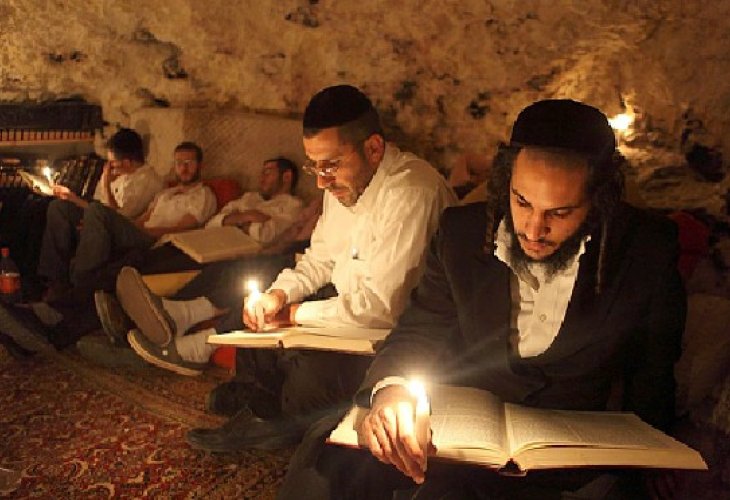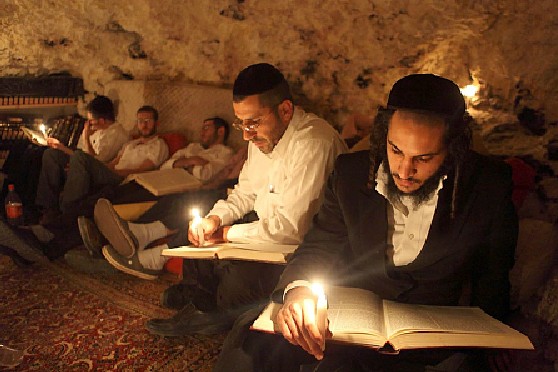Facts in Judaism
Small Steps, Lasting Change: How to Make Real Spiritual Progress This Year
The Art of Choosing a Personal Commitment and Actually Keeping It
- Naama Green
- |Updated

The Path to Growth Begins with One Small Step
Rabbi Shmuel Shmelke of Nikolsburg once offered a powerful interpretation of the verse, “Return, O Israel, to Hashem your G-d” (Hoshea 14:2). He explained it with a parable:
A man was carrying a heavy load when, midway through his journey, he felt too weak to continue. So, he set a mental goal: “I’ll just make it to that house over there. It’s not far.” When he arrived, he picked a new marker, a large stone in the distance, and again said, “Just until there.” This continued until he ultimately reached his destination.
That’s the meaning behind "Return until…" True teshuvah (repentance) often happens in small steps. By setting achievable goals in specific areas of life, we can gradually remove the barriers between ourselves and Hashem and arrive at a place of spiritual completeness.
The great Mussar masters recommend selecting one small resolution, a kabbalah, for a defined period of time. Below is a list of possible commitments. Choose one and decide on a time frame (e.g., until Yom Kippur, Sukkot, or another milestone):
Sample Resolutions
Recite Shema at bedtime from a printed siddur
Study two daily laws about lashon hara (proper speech)
Recite Asher Yatzar (blessing recited after using the bathroom) slowly, from a printed text
Recite Birkat HaMazon (Grace After Meals) slowly, from a printed text
Add an extra layer of modesty to your clothing
Add one more prayer to your day
Be consistent with praying in a minyan (quorum of ten men)
Perform netilat yadayim (handwashing) with care
Obey your parents immediately when asked
Dedicate one hour a day to speaking only permitted speech
Think each day about how to make a fellow Jew happy
Call or check in on someone who could use it (a grandmother, aunt, etc.)
Learn five minutes a day from a mussar book (e.g., Mesilat Yesharim, Orchot Tzaddikim)
Commit to buying only modest clothing going forward
Begin donating to an additional charity, regularly or on a one-time basis
Study the meaning of one chapter of Tehillim per week
Volunteer once a week
Say Modeh Ani (prayer recited early in the morning) aloud right upon waking
Accept Shabbat earlier and end it later (even by a few minutes)
Wash hands at your bedside upon waking
Say blessings with intention (out loud, slowly, while seated)
Practice modesty in public (fragrance, attire, gathering, tone of voice)
Judge someone favorably at least once each day
Increase respect toward your parents
Study two laws about Shabbat observance
Spread Torah or inspiration (distribute content, donate to newsletters, etc.)
Listen to the words of Torah sages
Avoid speaking negatively about Torah leaders
Choose one person and one time to avoid gossip
Pay extra attention to issues of theft or dishonesty
Avoid music that goes against Jewish values
Learn a bit about prayer or faith before davening
Sit while saying blessings over food
Give one compliment a day
Overcome anger once each day
Smile at least once a day
Make a weekly phone call to someone who needs support
Refrain from talking during Torah classes
![(Photo: Yaakov Naumi / Flash 90)]() (Photo: Yaakov Naumi / Flash 90)
(Photo: Yaakov Naumi / Flash 90)
A Spiritual Contract with Yourself
Taking on a kabbalah is not a casual act; it’s a spiritual contract. It’s a tool to preserve the serious spirit of the season, even after the emotional high has faded. A kabbalah is like a covenant: when people are close, they make a pact to carry them through the times when closeness may wane.
More than that, a good kabbalah builds self-awareness. We often fall not because we lack the strength to overcome our impulses, but because we haven’t been paying enough attention to the struggle. A personal resolution brings clarity, focus, and discipline to that fight.
However, it must be realistic. A kabbalah should be meaningful, but not too hard. If it proves too difficult to maintain, it can backfire and lead to a spiritual setback.
The Maggid of Jerusalem, the late Rabbi Shalom Schwadron, once recalled a lesson from his teacher, the late Rabbi Leib Chasman. The rabbi asked his student what kabbalah he could take on for the new year, on the condition that he would definitely keep it. The student began to respond. The rabbi interrupted: “Not like that. Sit down, think it through, and come back to me only when you’re sure you’ll follow through.”
When the student returned with a firm plan, the rabbi said, “Now cut it in half. Take on only that.”
Even a small commitment, if fully kept, is far better than a grand one that fades.


